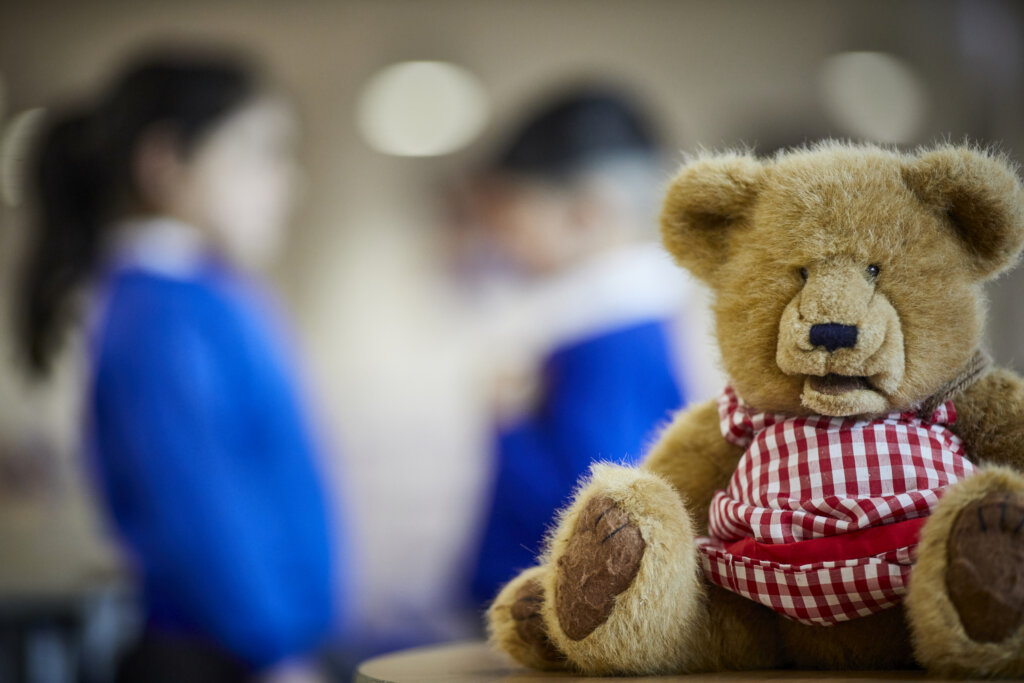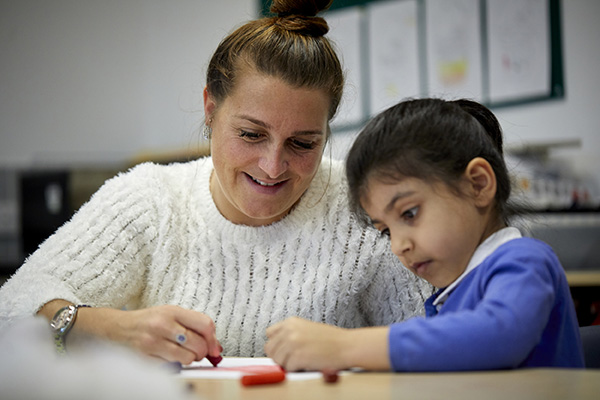“The expectation that we can be immersed in suffering and loss daily and not be touched by it is as unrealistic as expecting to be able to walk through water without getting wet”
Dr Naomi Rachel Remen.
Safeguarding Supervision is something we are hearing about more frequently as workloads and responsibilities for school safeguarding staff continually increase. Supervision aims to support staff who work in a safeguarding capacity to be able to manage the emotional components to their role and reduce professional isolation. It also provides opportunity to reflect on practice and ensure that the safety and wellbeing of the children and young people we work with is kept at the centre of our approach.
The Children’s Commissioner’s 2019 report on childhood vulnerability estimates that there are 2.3 million children in the UK who are living with risk because of a vulnerable family background, and that more than a third of these children are not known to services. Practitioners are knowledgeable in recognising vulnerable groups of children such as those who are Looked After, those with Special Educational Needs or Disabilities, children with emotional and mental health issues, children who are missing in education – the list goes on. One specific vulnerable group that schools and nurseries work with closely on a daily basis are children under the age of 5. They can be particularly vulnerable for a number of reasons but more commonly it is the fact that they have limited vocabulary and mobility that puts them at increased risk of being abused.
In 2010 the Serious Case Review in respect of Nursery Z (Little Ted’s Day Nursery in Plymouth) concluded that “the nursery provided an ideal environment within which Vanessa George could abuse”. There were a number of failings in the safeguarding management and procedures which failed to protect the children who attended Little Ted’s Day Nursery and perhaps one of the most significant findings was that staff who worked in the nursery did not receive effective supervision. There were not many opportunities for staff to reflect on the practice within the nursery or to raise any concerns of a safeguarding nature about the children that they worked with or indeed the staff.
Point 5 of the ‘Lessons Learnt’ in the Serious Case Review states that: “this review has identified the urgent need to develop effective staff supervision within Early Years settings. With no formal structures allowing staff to reflect on their own work and practice within the nursery there was no opportunity for any discomfort with Vanessa George’s increasing sexualised behaviour to be aired. Lack of supervision also meant there was no effective means to manage performance and challenge inappropriate behaviour such as use of mobile phones within the nursery. The Early Years Foundation Stage makes no requirement for supervision to be in place. This needs to be changed as a matter of urgency.”
Soon after this was published, supervision was formally introduced to the Statutory Framework for the Early Years and Foundation Stage and states the following:
“Providers must put appropriate arrangements in place for the supervision of staff who have contact with children and families. Effective supervision provides support, coaching and training for the practitioner and promotes the interests of children. Supervision should foster a culture of mutual support, teamwork and continuous improvement, which encourages the confidential discussion of sensitive issues.
Supervision should provide opportunities for staff to:
• Discuss any issues – particularly concerning children’s development or wellbeing, including child protection concerns
• Identify solutions to address issues as they arise
• Receive coaching to improve their personal effectiveness.”
Many EYFS settings have thoroughly invested in facilitating effective and appropriate supervision for their staff as a result of these recommendations. However, we must remember that schools who have a nursery, and in fact any settings who are delivering the EYFS curriculum must abide by this statutory framework, and therefore regular supervision should be being offered to their staff.
Not only is supervision an opportunity to look at an individual’s performance and continued professional development, it is an opportunity to facilitate discussions around safeguarding, whistleblowing procedures and is a reminder to all staff about the duty of care that we have to the children and families that we work with.
The Department for Education recently announced their consultation for Keeping Children Safe in Education 2020. On page 119, it states that “the role of the designated safeguarding lead carries a significant level of responsibility and they should be given the additional time, funding, training, resources and appropriate supervision support they need to carry out the role effectively”. With this in mind, now is an ideal time for Senior Leaders to be considering their supervision support for staff not only in EYFS settings but throughout all educational establishments.
With this in mind, now is an ideal time for Senior Leaders to be considering their supervision support for staff not only in EYFS settings but throughout all educational establishments.
The Education Welfare and Safeguarding Team at One Education have NSPCC trained staff who are qualified to deliver Safeguarding Supervision to Designated Safeguarding Leads and front-line safeguarding staff within schools, nurseries and colleges. For more information on this service and how One Education can best support your setting, please visit our safeguarding page.
References:
- Vulnerability Report – The Children’s Commissioner https://www.childrenscommissioner.gov.uk/publication/childhood-vulnerability-in-england-2019/
- Statutory Framework for Early Years and Foundation Stage https://www.gov.uk/government/publications/early-years-foundation-stage-framework–2
- Keeping Children Safe in Education Draft Consultation 2020 https://consult.education.gov.uk/safeguarding-in-schools-team/keeping-children-safe-in-education-2020/supporting_documents/KCSIE%202020%20%20draft%20guidance.pdf
















